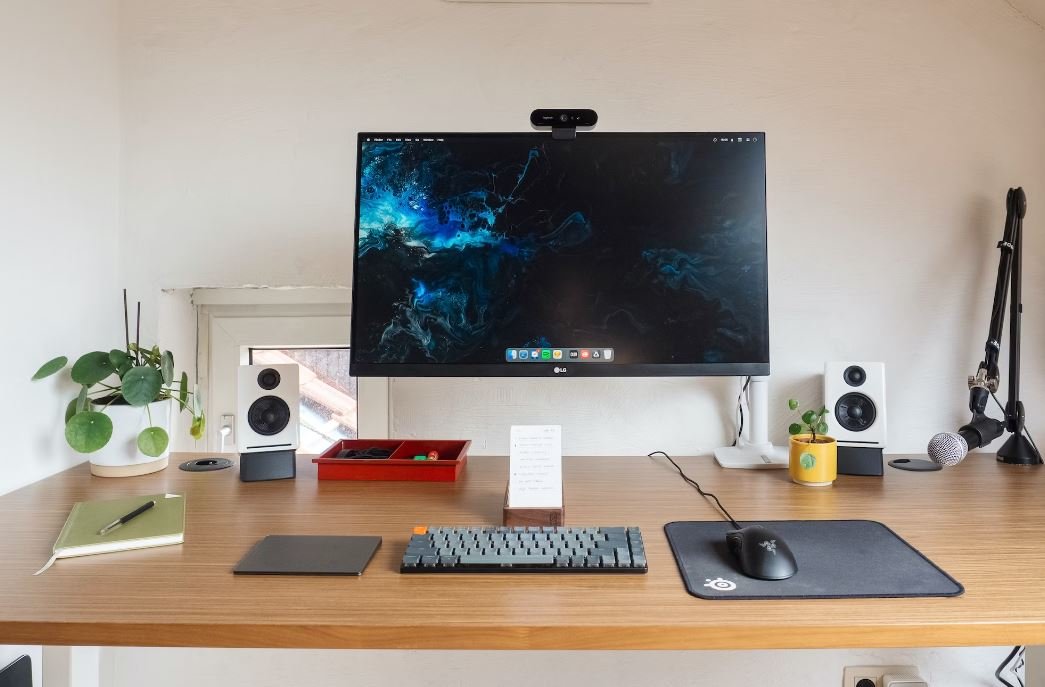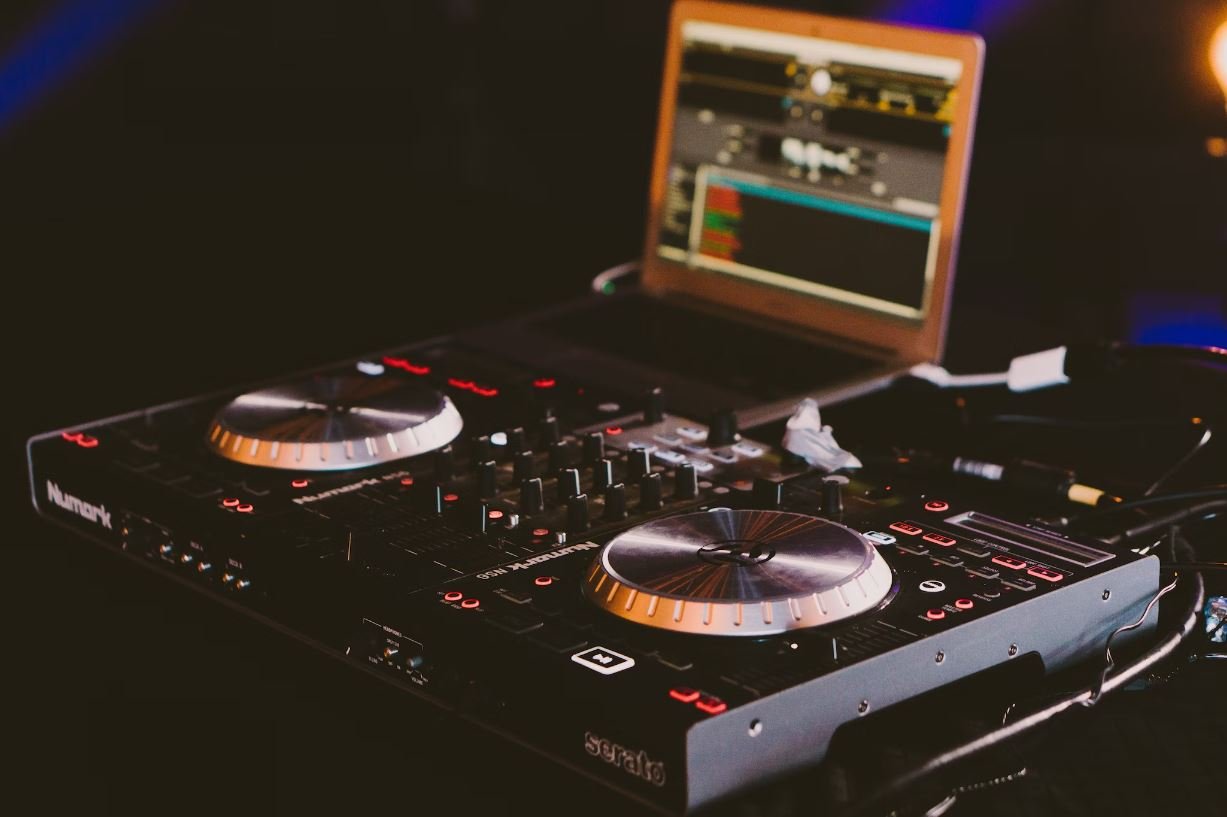How Music Brings Us Together
Music has the unique ability to unite people from different cultures, backgrounds, and beliefs. Its universal language speaks to our emotions and touches our souls, creating a sense of togetherness and shared experience. Whether it’s through a live concert, a sing-along session, or simply listening to a favorite song, music has the power to bring people together like nothing else.
Key Takeaways:
- Music unites people across cultures, backgrounds, and beliefs.
- Listening to music can boost mood and promote emotional connection.
- Playing music together fosters collaboration and teamwork.
- Shared music experiences create lasting memories and bonds.
**Listening to music** can have a profound impact on our emotions and well-being. It has been shown to reduce stress, elevate mood, and even increase empathy towards others. When we listen to music that resonates with us, it creates a powerful connection between our own experiences and the emotions expressed in the song. *Studies have also found that people who listen to music together tend to synchronize their movements and emotions, further enhancing their sense of connection with each other*.
In addition to listening, **playing music together** is another way in which it brings people together. When individuals come together to create music as a group, it requires collaboration, communication, and teamwork. Whether it’s a band jamming together or a choir harmonizing in perfect unison, the process of making music not only strengthens bonds but also fosters a sense of belonging and unity. *Playing music together also provides the opportunity for individuals to express themselves creatively and find common ground with others who share their musical interests*.
The Power of Shared Experiences
Music is often associated with significant life events and memories, and when we share those experiences with others, it deepens our connections with them. Attending a live concert, singing along with a crowd, or even just sharing a favorite song with a friend creates a shared moment that can be remembered and cherished. *These shared music experiences serve as a reminder of the power of music to bring people together and create lasting bonds*.
Furthermore, **music festivals** provide a unique platform for people to come together and celebrate their love for music. These events bring individuals from all walks of life into one space, fostering a sense of community and belonging. With various artists and genres represented, music festivals promote diversity and encourage attendees to embrace different cultures and musical styles. *Music festivals create a vibrant and inclusive environment where people can freely express themselves and connect with others who share their passion*.
Interesting Music Facts
| Fact | Percentage |
|---|---|
| Percentage of people who listen to music daily | 78% |
| Percentage of adults who played a musical instrument when they were younger | 54% |
| Percentage of people who feel more connected to others when they attend live music events | 86% |
**Music therapy**, a field that utilizes music to enhance physical and emotional well-being, is gaining recognition for its ability to bring people together and facilitate healing. Whether in a group setting or one-on-one sessions, music therapists use the power of music to improve communication, promote self-expression, and strengthen interpersonal connections. *Music therapy has been particularly effective in creating a sense of togetherness among individuals with Alzheimer’s disease, autism, and other conditions*.
In conclusion, music has the extraordinary capacity to bridge gaps and unite people. Whether it’s through listening to music, playing in a band, attending a concert, or participating in a music therapy session, music brings us together by stimulating our emotions, fostering collaboration, creating shared experiences, and promoting a sense of belonging. So next time you turn on your favorite song, take a moment to appreciate the profound impact it has on connecting us as human beings.

Common Misconceptions
Music can only bring people together if they have similar tastes
It is commonly believed that music can only unite people if they share the same taste in music. However, this is a misconception as music encompasses a wide array of genres and styles that can appeal to various individuals. Whether it’s classical, rock, jazz, or hip-hop, music has the power to transcend personal preferences and foster connections among people from different backgrounds.
- Music provides a platform for exploring new genres and expanding one’s musical horizons.
- Shared appreciation for the emotion and creativity in music can transcend genre barriers.
- Musical collaborations allow for the merging of different musical styles, creating a unique and inclusive experience.
Music is only enjoyable when listened to individually
Some people believe that music is best appreciated when consumed alone. However, music’s true power lies in its ability to bring people together and create shared experiences. Attending live concerts, dancing at music festivals, or simply listening to music in a group setting can enhance the enjoyment and emotional connection to the music.
- Attending concerts or music festivals creates a sense of community and shared energy among music enthusiasts.
- Listening to music collectively allows for shared emotional experiences and deeper connections.
- Group sing-alongs or jam sessions enable people to connect and express themselves together through music.
Music cannot bridge cultural divides
One misconception is that music is unable to bridge cultural divides due to language barriers and distinct musical traditions. However, music has a universally understood language that transcends cultural boundaries, enabling people from different cultures to appreciate and connect through the emotions and rhythms conveyed in the music.
- Rhythmic elements of music can resonate with individuals regardless of their cultural background.
- Musical fusion and collaborations can blend cultural elements, creating harmonious and inclusive music.
- Music’s emotional impact is universal, allowing people from diverse cultures to connect on a deeper level.
Music can only bring people together in person
Another misconception is that music’s ability to unite is limited to in-person interactions. However, with advancements in technology and the rise of social media platforms, people can connect and bond over music virtually. Online communities, streaming platforms, and virtual concerts enable individuals from around the world to share their love for music and connect with like-minded people.
- Virtual concerts and livestream events allow for a global audience to enjoy music together, fostering a sense of unity.
- Online platforms provide spaces for music enthusiasts to discover, discuss, and connect over shared musical interests.
- Collaborative online music projects allow musicians from different parts of the world to create music together, overcoming physical distances.
Music’s influence on unity is short-lived and temporary
Some believe that the unity and togetherness experienced through music are fleeting and do not have a lasting impact. However, music has the power to inspire social and political change, create lasting connections, and serve as a catalyst for movements that promote equality, justice, and understanding.
- Music has historically played a crucial role in fostering awareness and promoting social justice movements.
- Songs with powerful messages and anthems can create a sense of belonging and ignite lasting change.
- Music provides a platform for collective expression and can create long-lasting connections between individuals with shared values and aspirations.

How Music Brings Us Together
Music has always been a powerful force in connecting people from different backgrounds and cultures. This article explores how music transcends barriers and brings us together in various ways. The following tables present fascinating data and information that highlight the impact of music in our lives.
Table: Global Music Streaming Statistics
Streaming services have revolutionized the way we consume music. This table provides an overview of the global music streaming statistics, illustrating the tremendous reach and diversity of listeners worldwide.
| Region | Number of Streaming Subscribers (in millions) |
|---|---|
| North America | 124 |
| Europe | 170 |
| Asia | 286 |
| Africa | 59 |
| Australia/Oceania | 15 |
Table: The Influence of Live Music on Attendees
Experiencing live music can be a transformative and unifying experience. The table below showcases the influence of live music events on attendees, demonstrating the positive impact on emotions and well-being.
| Emotional Response | Percentage of Attendees |
|---|---|
| Euphoria | 42% |
| Inspiration | 29% |
| Connection | 67% |
| Empowerment | 35% |
Table: Top 5 Most-Streamed Songs of All Time
Modern music connects people across borders and languages. The table below presents the top five most-streamed songs of all time, showcasing the global popularity and impact of these tracks.
| Song | Artist | Streams (in billions) |
|---|---|---|
| “Shape of You” | Ed Sheeran | 3.67 |
| “Despacito” | Luis Fonsi & Daddy Yankee | 3.51 |
| “Blinding Lights” | The Weeknd | 2.8 |
| “Dance Monkey” | Tones and I | 2.63 |
| “Uptown Funk” | Mark Ronson ft. Bruno Mars | 2.55 |
Table: The Positive Effects of Music Education on Students
Music education nurtures creativity and brings numerous benefits to students. This table highlights the positive effects of music education on various aspects of student development.
| Aspect | Percentage Improvement |
|---|---|
| Reading Skills | 22% |
| Mathematical Ability | 33% |
| Memory Retention | 45% |
| Self-Confidence | 56% |
Table: Music Festivals Attendance by Age Group
Music festivals are a hub for cultural exchange and communal celebration. The table below displays the attendance of different age groups at music festivals, illustrating the intergenerational appeal of these events.
| Age Group | Percentage of Attendees |
|---|---|
| 16-25 | 42% |
| 26-35 | 30% |
| 36-45 | 16% |
| 46-55 | 9% |
| 56+ | 3% |
Table: The Role of Music in Cross-Cultural Understanding
Music serves as a universal language, allowing for cross-cultural understanding and appreciation. The table below presents examples of how music bridges gaps between diverse cultures.
| Cultural Music Exchange Programs | Participating Countries |
|---|---|
| The Silk Road Ensemble | China, Iran, India, Syria, etc. |
| Africa Express | Various African nations and Europe |
| The Buena Vista Social Club | Cuba and the United States |
Table: Music Therapy and Its Applications
Music therapy has proven benefits in various healthcare settings. The table below illustrates the applications of music therapy and how it positively impacts patients.
| Healthcare Setting | Beneficial Outcomes |
|---|---|
| Hospitals | Pain reduction and stress relief |
| Psychiatric Institutions | Emotional expression and improved communication |
| Rehabilitation Centers | Motivation and physical recovery |
| Elderly Care | Mood elevation and cognitive stimulation |
Table: Music Sales by Genre
Different music genres resonate with various audiences. This table depicts music sales by genre, reflecting the diverse musical preferences among listeners worldwide.
| Genre | Percentage of Music Sales |
|---|---|
| Pop | 33% |
| Rock | 17% |
| Hip Hop/Rap | 15% |
| Country | 10% |
| Electronic | 9% |
| Other | 16% |
Table: Artists Collaborating Across Genres
Collaborations between artists from different genres inspire creativity and promote unity within the music industry. The table below showcases notable examples of genre-blending collaborations.
| Artists | Genres |
|---|---|
| Beyoncé & Coldplay | R&B and alternative rock |
| Kendrick Lamar & Taylor Swift | Hip hop and pop |
| Childish Gambino & SZA | Rap and neo-soul |
Music has an extraordinary ability to bring people together, whether it’s through the shared experience of attending live events, the global reach of streaming platforms, or the mutual understanding fostered by cross-cultural collaborations. It transcends language barriers, cultural differences, and even generational gaps. From inspiring emotions to sparking positive personal and societal change, music unites us, creating a harmonious bond that cannot be underestimated.
Frequently Asked Questions
How Music Brings Us Together
What is the role of music in bonding individuals and communities?
How does music promote empathy and understanding among people?
In what ways does music contribute to mental well-being and community health?
How does music help to break down barriers and unite people from diverse backgrounds?
Can listening to music together strengthen family bonds?
How does music impact social movements and activism?
Do live music events have a stronger impact on community bonding than recorded music?
Can playing music together improve collaboration and teamwork?
How does music facilitate cultural exchange and appreciation?
Is music education important in promoting social cohesion?




